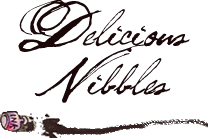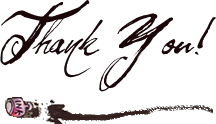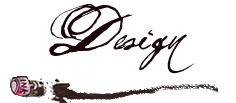 My 20th interview is with Julia who lives in Illinois. She is 37 years old, married, with 3 children. She is a stay-at-home mom and has a blog called Midwest Moms.
My 20th interview is with Julia who lives in Illinois. She is 37 years old, married, with 3 children. She is a stay-at-home mom and has a blog called Midwest Moms.
What does the word feminist mean to you? Has the meaning changed over time? I grew up in the seventies and eighties, so I was surrounded with images of strong women in the media. Later, when I was in my early teens, women were more prominent in business and politics. So, I was raised with a background assumption that I could be or do anything. I guess that’s how I defined feminism.
As I grew into full womanhood, though, I have come to understand that nothing comes without trade-offs or sacrifice. The media myth of ‘having it all’ or ‘being anything’ didn’t hold in reality. So right now, feminism means freedom to make my own choices about my path, not necessarily being a woman who “has it all.”
Do you consider yourself a feminist? I consider myself a strong woman who makes her own choices.
Would others consider you a feminist? I’m not sure whether they would or not. That’s really not my first concern.
If you are a feminist, do you feel comfortable owning that title in your everyday life? As long as it is realistically defined, I do.
What are some images that come to mind when you think of the women’s movement? I think of movie actresses of the 30s and 40s smartly dressed in menswear. I think of images of feminine strength of my childhood, like Martina Navratilova or (believe it or not) Margaret Thatcher. Somewhere in the back of my memory there are the history lesson images of suffragettes and Cady-Stanton, but I was always more impressed with real life amazing women doing amazing things. Supreme Court Justice Sandra Day O’Connor is a good example of what I’m talking about.
What was the greatest gift of the women’s movement? Expansion of the life choices available for women and recognition of their ability to make them.
What was the greatest failure of the women’s movement? Propagation of the false idea that increasing options obligate all women to reach for all things. Devaluation, intentional or unintentional, of the work of the home & family.
Who were your earliest female role models other than your mother? Teachers, I would say. I also looked up to female athletes a great deal.
Was getting married/partnered a conscious goal or focus early on in your adulthood? Although I wouldn’t have admitted it at the time, it probably was. I always knew I wanted to be married and have children; I felt called to it.
Did your mother work outside the home? She did not; she was a registered nurse before she had children and briefly went back to work after her first was born. But after her second child was born, she decided to stay home. She had six of us in all. When she was done bearing children, she started an in-home daycare to bring money in. I guess that made her an original WAHM.
How did that affect you growing up? I remember recognizing that she was working to help our family finances. Still, I periodically resented that she took care of other people’s children when I really needed my own bond with her. Now that I’m a mother, I understand the fine line she walked and know that she did her best.
Did your father respect your mother? He did.
Did your mother respect your father? Unquestionably.
What do you wish your mother had told you about marriage, life, anything…that you didn’t hear from her? That it is okay not to have the answers or to feel overwhelmed. She always stressed communication but didn’t really speak from her own experience. There have been many times when I’ve craved a more real exchange with her.
What role did your father play in your childhood? What was your relationship like with your father? He worked hard to support us. He was a coach for my oldest brother and sister, but not for me. I always identified with my Dad and had a much healthier, full relationship with him than with my mother. We shared a love of sports, so that was one area where it was easy to communicate. But there were others. He and I were so temperamentally alike that I really felt he understood me. I have always been grateful for his ability to listen without trying to “solve” me.
How do you feel about aging? I’m getting used to it. It’s tough sometimes to realize that there are some things I won’t be able to do the same way or that my looks will change. But I am happy with the path that has brought me to this particular place, right now. I would not change that path for anything.
How do you feel about plastic surgery? Great for burn victims; a stupid risk if one is motivated by vanity.
Have you ever dieted? Yes
Are you happy and/or comfortable with your weight? On and off. As I have had children and as I age, my body is changing. It takes some adjustment to get used to that.
Would you describe yourself as someone with “body issues?” If so, when do you remember this starting? What do you attribute it to? I would say I had body issues for a while after I entered college. It was the first time I was fully in charge of my own decision-making on many fronts. Looking back, I would say that my upbringing had not fully prepared me for the responsibility of that. My insecurity regarding life choices was manifested in a changed body image.
How do you feel about the sexualizing of young women in our society? I think it’s shameful and disturbing. There is no more appreciation of innocent beauty anymore. It makes me feel like we’ve lost something as a society, and I wonder how it will affect my daughter’s own self-image.
Did your mother or another caretaker talk to you about sex and what to expect? My mother did. She was a nurse, so everything was handled clinically. The first time I asked a question that wasn’t anatomical and was met with shock, I stopped asking questions.
How was your first sexual experience? Desperate fumbling and a little fear. Like jumping off a cliff.
Is marriage liberating or inhibiting sexually? Liberating.
What makes you feel sexy? Looking pretty, getting myself cleaned up and beautiful before I go out with my husband. Seeing in his eyes that he thinks I’m beautiful.
What turns you on? Truly? When my husband pitches in to help with the children. But also when we have an unexpected quiet moment together. It feels like we’re getting away with something, and that’s a thrill.
Do you have the energy/desire for sex at the end of the day? I do, but making time for it in the afternoon or morning is great, too. When you’re a mom, you’ve got to be an opportunist.
Why did you decide to be a stay-at-home mom? When my husband and I married, we wanted one parent to be the full time caregiver for the children, so we made plans accordingly. We drove older cars and bought a smaller home, we did without so that we would be able to live on a single income. When my first was born, my bond with him was instantaneous. I knew I wanted to be the one to raise him.
Do you consider it a job? Do you feel that you are valued? That is a tough question. On the one hand, I know it is. On the other, I am conscious of the fact that I don’t earn a paycheck – that I am dependent on my spouse’s earnings. That undercuts some of the value that is intrinsic to what I do. But in our home, I know my raising the children is valued. I am giving them the best start in life, and that feels good.
Do you feel supported by your partner? I do.
Do you feel supported by other women? I do.
What do you love about being a SAHM? That my children want to talk to me about every aspect of their life, the victories and the challenges. I love adoring them and teaching them and seeing them grow.
Is there a dark side of being a SAHM? I think every at-home mother has highs and lows, but having worked for many years before marrying and having children, I can say that’s no different than any profession. The only reason slumps in motherhood would even be labeled “dark” is that there can be an unrealistic expectation that life for a SAHM should resemble a 1950’s sitcom. Every Mom is a human being, and every family has good times and struggles. So Moms should know that frustration and anger and sadness are just part of living. Hopefully, laughter and joy and learning and forgiveness are, too.
What was your career before you had children? I was an historian and then went into non-profit work.
Has it been hard to let go of that identity? Or you still identify with that role? I do identify with it, because my career path was a reflection of my desire to make a difference in causes I care about. I still work as a development volunteer for important causes – it’s a great way to keep my skills and professional network fresh for the time when I’m no longer raising my children.
If you had a choice to return to work, would you? No one can do what I am doing for my children right now. But, I know that someday I will go back to work. I look forward to that day, but I’m not impatient for it. As my children age, their need for guidance won’t diminish. I want to be a ready resource for them and a friend to them as they enter teenage. So, maybe I will work part-time outside the home, but motherhood is my calling.
Do you believe a happy, fulfilled mom is a better mom whether her choice is to work outside the home or to stay at home with her children? Absolutely. The important word in that question is “choice”. It must be each individual Mom’s choice.
Can women do it all? I honestly don’t believe any human being can “have it all”. We have to set priorities or we’ll lose our minds and never feel satisfied. There just aren’t enough hours in the day or enough resources of personal, spiritual energy for a human being to be the best at all things. Life doesn’t work that way.
How old are your children? I have two boys, ages 6 and 8, and a little girl, age 3.
What do you want to do differently with your children than what you received from your parents? I was raised in a regimented, orderly home. Virtually all decisions were made for me, so I had trouble moving from childhood into adulthood. It was a painful transition. With my own children, I try to empower them to make their own decisions, to think things through, and to be resilient when all doesn’t proceed according to plan. I’m trying to give them skills I wasn’t taught.
What would you like to carry on that your parents established with you? Our faith life, connection to and understanding of our connection to the divine. A strong bond of trust, love, and honesty between family members. A strong sense of inner worth, a good moral compass.
Do you have dates with your partner? Yes. We go out about once a month.
Do you have personal “ME” time scheduled every week/every day? Yes. I take time out of every day for quiet. It might be my writing time or time in my garden. It keeps me whole.
How do you combat stress? I talk about things that are bothering me, instead of holding them inside. I get proper rest and try to make healthy choices. I find ways to laugh. Laughter is the best stress-fighter there is. I also get involved in causes I care about outside our home. Sometimes that can renew my perspective.
Do you get out regularly with girlfriends? I used to, but not so much in the past year. I have a core group of women who read my blog, and whose blogs I read, that have become like friends I “talk” to every day.
Do you help create personal space for your partner? I do. We are both athletic and I encourage him to stay involved in his sports. That is his time for renewal.
Does your partner share in household tasks? We are fixing up a 90-year-old house, so he has a lot on his plate. He helps where he can, but I like to think helping to shoulder each other’s burdens is more important than who unloads the dishwasher.
How did you think your life would be when you got married? How do you feel now? Honestly, I had no idea. But I like where we are as a family – where I am as a Mom.
Are you happy and/or fulfilled with your life? Why? In general, I would say that I am. Of course, there are always specific areas of life I would like to change or improve. But I’m happy about the path that has brought me to this place.
How has having children changed the relationship with your partner? It has opened our hearts to more love than we ever thought possible. It has softened our rough edges and made us truly rely on one another. It has helped us to laugh more – every day.
Do you see evidence of “The Mommy Wars” in your everyday life? Not so much. I teach my children not to compare themselves to others, not to judge their own worth by someone else’s yardstick. It’s an easy lesson to teach because I live it. I don’t allow other mother’s choices to make me question my own. By the same token, I try to react to other mothers’ struggles with compassion and understanding. On my blog, I have written about the Sisterhood of Moms, about my sense that we’re all team-mates in one of life’s grandest adventures. I never knew that having children would bring me into a club like this one. But it has. Being a mom has changed me and made me a better person, and there are a whole bunch of women who have helped to guide me along my road. The least I can do is be that guidepost for the next Mom.
Has it been challenging to retain a separate sense of self from your role as mother & wife? At first, it was. But as I have grown into Motherhood more, I have started to understand that keeping myself whole helps me to do the job of mothering better. There is something liberating about putting a bad day or a childhood phase in perspective, reminding myself that failing at something one day doesn’t make me a failure. I’m just a human being.
Thank you, Julia
*********************************************************
The Motherscribe Interviews are closed for comments. If you'd like to learn more about Julia, please find her on Midwest Moms.
| Tweet |
|
|||









